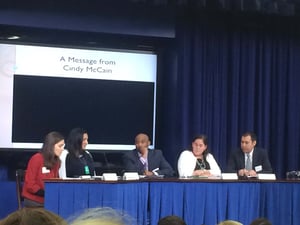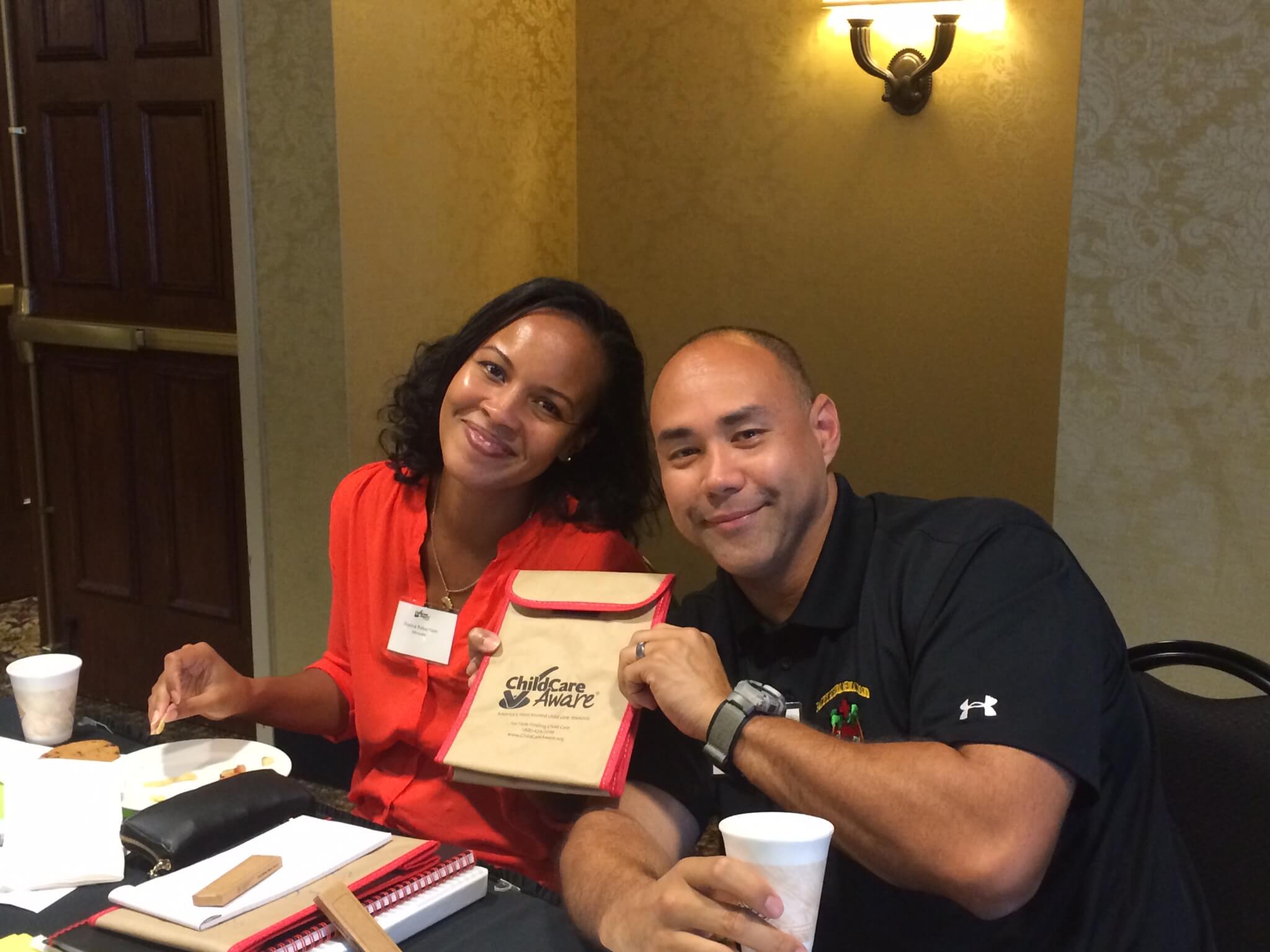Yesterday Child Care Aware® of America joined the White House Office of Science & Technology Policy to highlight early literacy challenges and successes in communities across the country and share best practices and lessons learned. The word gap refers to children in low income communities starting school with 30 million less words than their peers of higher socioeconomic status. The day consisted of advocates, led by Too Small to Fail, alongside top researchers and scientists, as well as federal and local policymakers, discussing the importance of creating a strong literacy foundation for all children.
 This strong literacy foundation helps prepare students for kindergarten and sets children up for better outcomes throughout their life. This foundation also supports a workforce needed to compete in the global economy and create a prosperous future for generations to come. In the first three years of life early language and rich literacy experiences are especially important. As research has proven, the brain undergoes its most dramatic development during this time as children acquire the ability to think, speak, learn, and reason. As a mother of a 19 month-old son, I get to witness this dramatic development every day. On our ride home from child care, I talk, read, and sing with him and see how his vocabulary is exponentially blossoming.
This strong literacy foundation helps prepare students for kindergarten and sets children up for better outcomes throughout their life. This foundation also supports a workforce needed to compete in the global economy and create a prosperous future for generations to come. In the first three years of life early language and rich literacy experiences are especially important. As research has proven, the brain undergoes its most dramatic development during this time as children acquire the ability to think, speak, learn, and reason. As a mother of a 19 month-old son, I get to witness this dramatic development every day. On our ride home from child care, I talk, read, and sing with him and see how his vocabulary is exponentially blossoming.
But it’s not just my son. On a typical day more than 11 million children under age 5 spend an average of 35 hours a week in the care of someone other than their mother. About one-quarter of these children are in multiple child care arrangements. In these settings, children are naturally communicating with their caregivers on what they think, feel and are experiencing. This “conversational duet” not only promotes language skills, but also critical thinking skills, and strong social and emotional development.
Speaking and honoring home language is also critical. Children need to have lots of fun and meaningful chances to talk, read, and pretend-write in their home language. Each of the opportunities to interact build skills that will help all children be prepared for a successful life.
Make sure to visit ChildCareAware.org to get more information on how you and your child’s caregiver can best build your child’s early reading and writing skills. A call to your local Child Care Resource & Referral agency (CCR&R) can give you additional information about literacy resources.
Also, make sure to check out what some of our coalition partners are doing: Too Small to Fail’s Talk, Read, Sing Campaign http://talkreadsing.org/. And ZERO TO THREE’s new web portal, Beyond the Word Gap http://www.zerotothree.org/policy/beyond-the-word-gap/, which offers multimedia resources to help parents, professionals, and policymakers to support early language and literacy.





